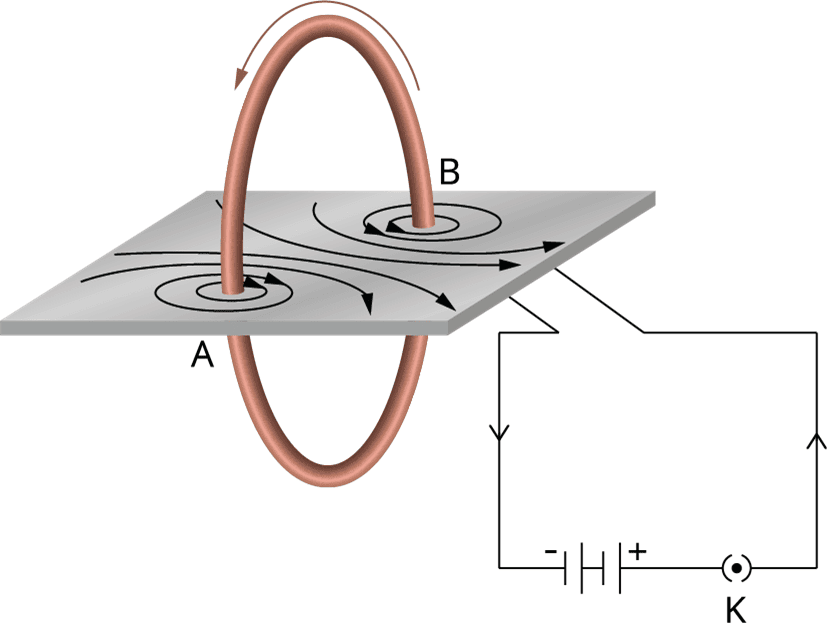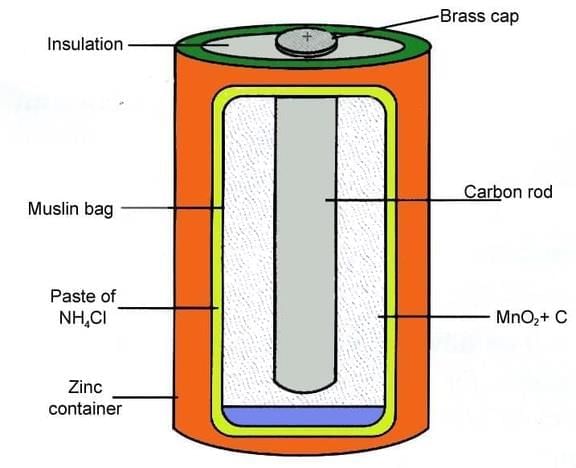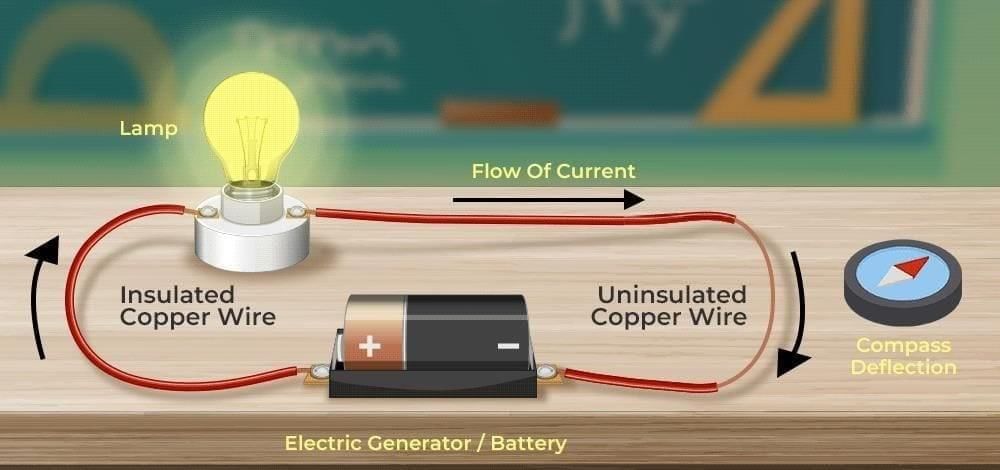Unit Test: Electricity- Magnetic and Heating Effects | Science Class 8 PDF Download
Time: 1 hour
M.M. 30
Attempt all questions.
- Question numbers 1 to 5 carry 1 mark each.
- Question numbers 6 to 8 carry 2 marks each.
- Question numbers 9 to 11 carry 3 marks each.
- Question numbers 12 & 13 carry 5 marks each.
- 1-mark questions include MCQs.
Q1: When electric current flows through a straight conductor, the space around it has a (1 Mark)
(i) gravitational field
(ii) electric field only
(iii) magnetic field
(iv) no fiel
Q2: A current-carrying coil behaves like (1 Mark)
(i) a heater only
(ii) a magnet
(iii) a battery
(iv) an insulator
 Current Carrying Coil
Current Carrying Coil
Q3: In a nichrome wire, heating is more than in a copper wire of the same size and length for the same current because nichrome has (1 Mark)
(i) lower resistance
(ii) higher resistance
(iii) zero resistance
(iv) infinite resistance
Q4: A dry cell is called “dry” because (1 Mark)
(i) it contains dry metal only
(ii) its electrolyte is a moist paste, not a free liquid
(iii) it never leaks
(iv) it cannot supply current
 Dry Cell
Dry Cell
Q5: Increasing the number of turns of a coil (keeping current same) makes an electromagnet (1 Mark)
(i) weaker
(ii) unchanged
(iii) stronger
(iv) vanish
Q6: State one observation that shows current has a magnetic effect and one that shows current has a heating effect. (2 Marks)
Q7: Give two ways to increase the strength of an electromagnet made from a coil around an iron nail. (2 Marks)
Q8: Why is nichrome used as a heating element instead of copper? (2 Marks)
Q9: In a compass-under-wire experiment, the needle deflects when the switch is ON and returns when OFF. Explain what this proves and why the needle returns. (3 Marks)
Q10: Match the following: (3 Marks)
(i) Voltaic cell ——— (a) works on heating effect of current
(ii) Electromagnet ——— (b) chemical reactions produce electricity
(iii) Electric iron ——— (c) works on magnetic effect of current
Q11: A student uses one cell to power an electromagnet and later switches to two identical cells in series. Predict and explain two observable changes in the setup. (3 Marks)
Q12: (a) Describe how you would make a simple lemon cell to glow an LED.
(b) Why might the LED glow only after reversing its terminals?
(c) Will pure distilled water work as electrolyte instead of lemon juice? Explain. (5 Marks)
Q13: (a) Explain the heating effect of electric current with four factors it depends on.
(b) List two safety concerns arising from unwanted heating and two household measures/devices that address them.
(c) Give two societal advantages of using electric heating devices over burning wood/charcoal. (5 Marks)
|
136 videos|530 docs|57 tests
|
FAQs on Unit Test: Electricity- Magnetic and Heating Effects - Science Class 8
| 1. What are the magnetic effects of electricity? |  |
| 2. How does the heating effect of electricity work? |  |
| 3. Who discovered the relationship between electricity and magnetism? |  |
| 4. What are some practical applications of the magnetic and heating effects of electricity? |  |
| 5. Can the heating effect of electricity be harmful? |  |
















